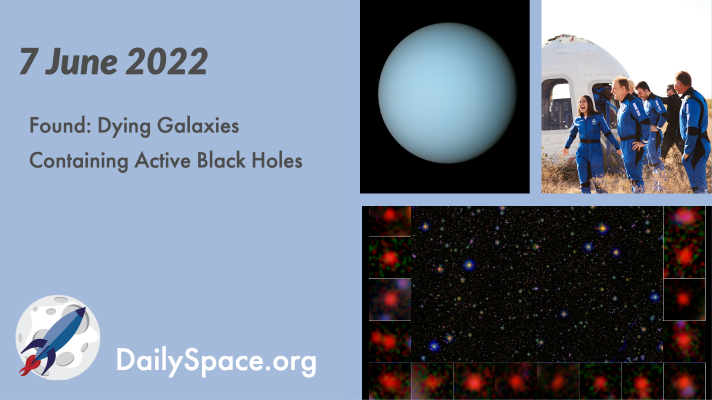
Jun 8, 2022 | Asteroids, Blue Origin, Climate Change, Cosmology, Crewed Space, Daily Space, Earth, Galaxies, Neptune, Rockets, ROSCOSMOS, Space China, Spacecraft, Supermassive Black Holes, Uranus
Astronomers combined observations of far distant galaxies exhibiting no signs of star formation and found active supermassive black holes that may have contributed to the evolution of their parent galaxies. Plus, rocket launches, detecting earthquakes, and why Uranus and Neptune are different shades of blue.
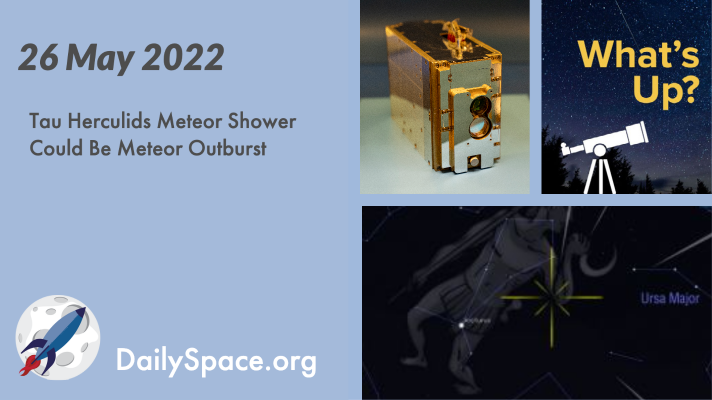
May 27, 2022 | Climate Change, Comets, Cosmology, Daily Space, Earth, Guest Interview, JWST, Rockets, Spacecraft, SpaceX
Due to the gravitational pull of Jupiter on the fragments and dust of comet 73P/Schwassmann-Wachmann, Earth’s orbit may be moving through a dense portion of the comet’s trail on May 31. This alignment could result in an unusually spectacular meteor outburst, and we’ll interview astronomer Pierre Martin about this possible event. Plus, a SpaceX launch that wasn’t Starlink, a new solar sail, and JWST.
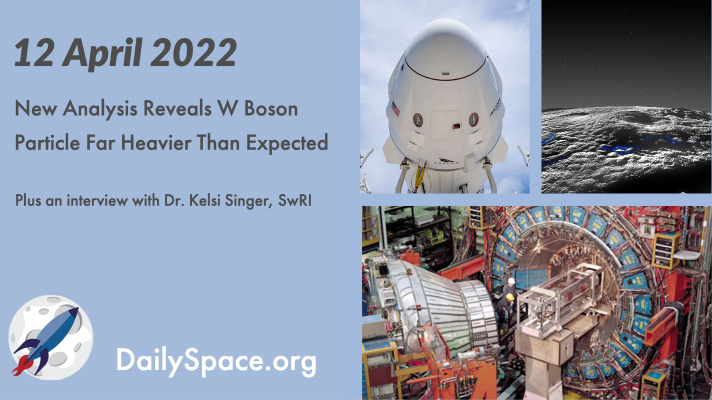
Apr 13, 2022 | Cosmology, Crewed Space, Daily Space, Earth, Galaxies, Guest Interview, JWST, Physics, Pluto & Charon, Rockets, SpaceX
Despite being shut down a decade ago, the Collider Detector at Fermilab provided enormous amounts of data, some of which have recently been re-analyzed, leading to the discovery that the W boson is actually more massive than calculations and predictions expected. Plus, another JWST update, the newest most distant galaxy, gravitational waves, and an interview with Dr. Kelsi Singer about cryovolcanoes on Pluto.
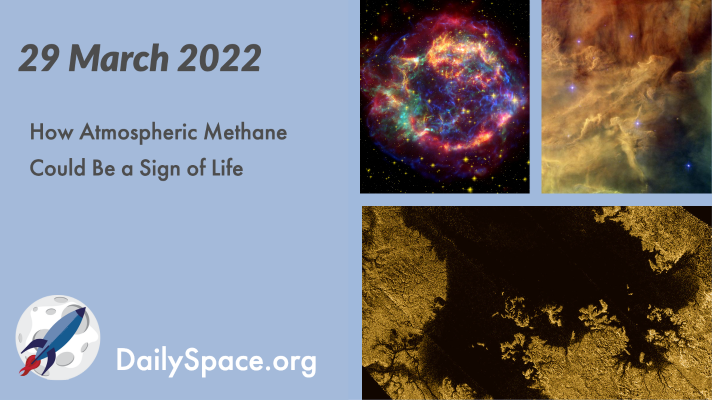
Mar 30, 2022 | Astrobiology, Cosmology, Daily Space, Earth, Galaxies, Mars, Planetary Nebulae, Rockets, Space China, Supernovae Remnants, Titan
Join us as we take a deep dive into the history of atmospheric methane on Mars and Titan, how that methane could be a sign of life, and what methane means for future missions and science. Plus, a planetary nebula, a supernova, ancient helium, and a couple of rockets.
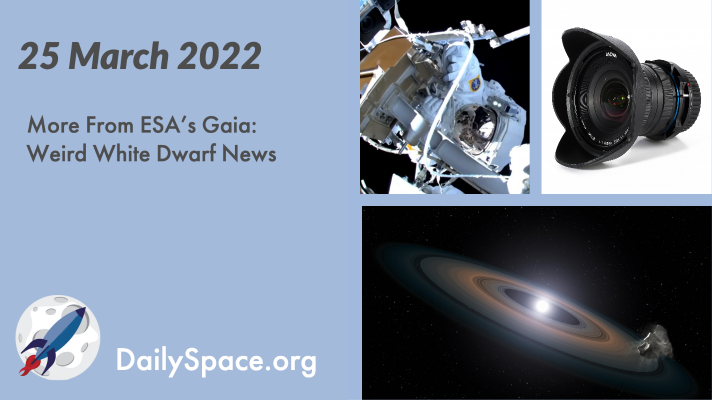
Mar 28, 2022 | Cosmology, Crewed Space, Daily Space, ESA, JAXA, Review, ROSCOSMOS, Spacecraft, White Dwarfs
Researchers use data from ESA’s Gaia telescope to discover that white dwarf stars have two different distributions both in how they move and how bright they shine. Plus, all the International Space Station news, simulated JWST observations, and a review of a macro lens from Venus Optics.
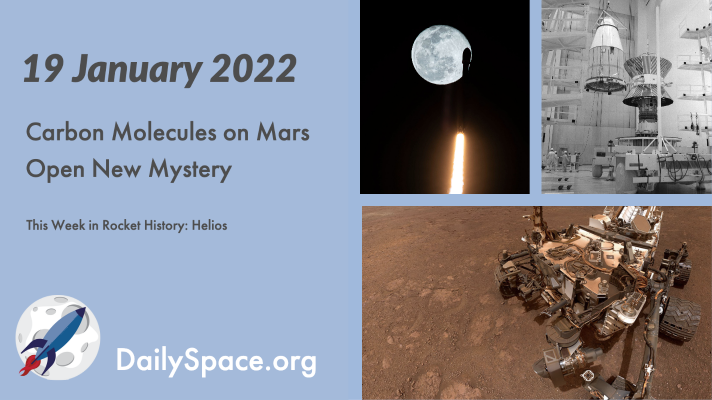
Jan 20, 2022 | Astrobiology, Cosmology, Curiosity, Daily Space, Mars, Neutron Stars / Pulsars, Rockets, Space History, Spacecraft, SpaceX, Starlink, Stars, Supermassive Black Holes, White Dwarfs
NASA’s Curiosity rover has discovered carbon isotopes on Mars which are usually caused by the degradation of biological methane, leading scientists to examine other potential reasons for the molecules. Plus, more Starlink satellites, their impact on observing, and This Week in Rocket History.








 We record most shows live, on Twitch. Follow us today to get alerts when we go live.
We record most shows live, on Twitch. Follow us today to get alerts when we go live.